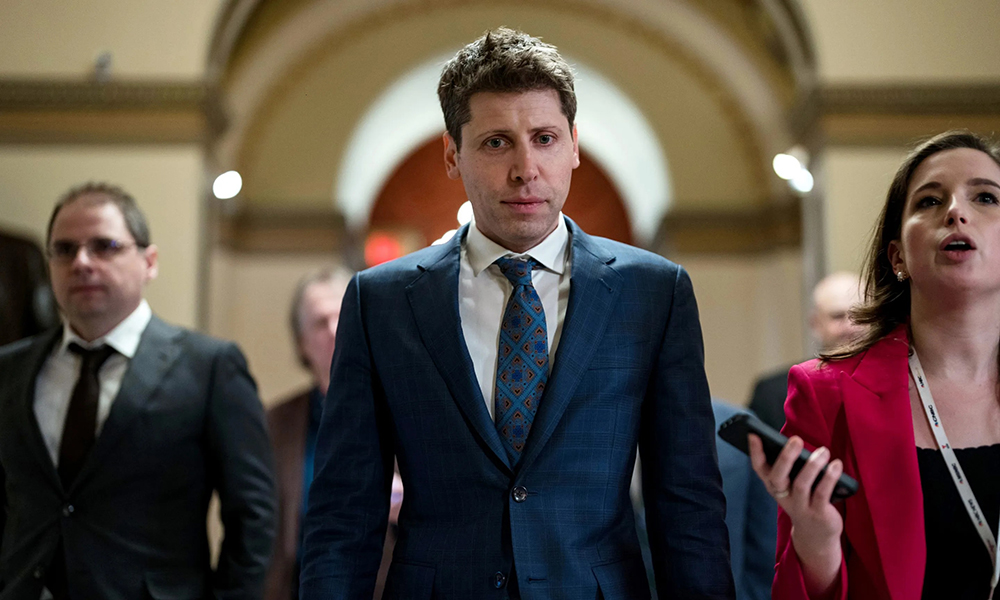
OpenAI首席执行官山姆·奥特曼表示,人工智能可能会比人类更聪明,并且这一时刻可能比许多人预期的更早到来。
奥特曼在其个人网站的一篇博文中讨论了他所称的“智能时代”,并表示:“我们有可能在几千天内实现超级智能(!);也许这需要更长的时间,但我确信我们最终会实现这一目标。”
当然,“几千天”是个相当宽泛的概念。2,000天约是5.5年,而5,000天则接近14年。因此,虽然奥特曼非常看好人工智能的未来,但他并未预言这种变化会在短期内发生。
生成式人工智能的目标是匹敌人类的智力,而超级智能人工智能则可能超越这一目标,也许会大大超过人类大脑评估问题和做出决策的能力。鉴于人工智能的潜力,这项技术可能会在某种程度上使人们极度恐惧。
奥特曼在博文中提到,目前,社会正处于他所说的“智能时代”的开端,他认为这可能是人类历史上最具变革性的时代之一。
“我相信,未来将是如此光明,以至于没有人能通过现在的文字来公正地描述它;智能时代的一个决定性特征将是大规模的繁荣,”他写道,“虽然这一切将会逐步实现,但惊人的成就——解决气候问题、建立太空殖民地以及全面发现物理学——最终将变得司空见惯。凭借近乎无限的智慧和充沛的精力——生成伟大想法并将其付诸实践的能力,我们可以做很多事情。”
虽然奥特曼看好人工智能的未来,但他也指出了潜在的负面影响,包括对劳动力市场的冲击。不过他对此仍持谨慎乐观的态度,认为“大多数工作的变化速度将比大多数人想象的要慢”,并表示我们今天所做的许多工作在未来看来都是浪费时间。
“没有人会回望过去,希望自己是一名点灯人,”他写道。(财富中文网)
翻译:刘进龙
审校:汪皓
OpenAI首席执行官山姆·奥特曼表示,人工智能可能会比人类更聪明,并且这一时刻可能比许多人预期的更早到来。
奥特曼在其个人网站的一篇博文中讨论了他所称的“智能时代”,并表示:“我们有可能在几千天内实现超级智能(!);也许这需要更长的时间,但我确信我们最终会实现这一目标。”
当然,“几千天”是个相当宽泛的概念。2,000天约是5.5年,而5,000天则接近14年。因此,虽然奥特曼非常看好人工智能的未来,但他并未预言这种变化会在短期内发生。
生成式人工智能的目标是匹敌人类的智力,而超级智能人工智能则可能超越这一目标,也许会大大超过人类大脑评估问题和做出决策的能力。鉴于人工智能的潜力,这项技术可能会在某种程度上使人们极度恐惧。
奥特曼在博文中提到,目前,社会正处于他所说的“智能时代”的开端,他认为这可能是人类历史上最具变革性的时代之一。
“我相信,未来将是如此光明,以至于没有人能通过现在的文字来公正地描述它;智能时代的一个决定性特征将是大规模的繁荣,”他写道,“虽然这一切将会逐步实现,但惊人的成就——解决气候问题、建立太空殖民地以及全面发现物理学——最终将变得司空见惯。凭借近乎无限的智慧和充沛的精力——生成伟大想法并将其付诸实践的能力,我们可以做很多事情。”
虽然奥特曼看好人工智能的未来,但他也指出了潜在的负面影响,包括对劳动力市场的冲击。不过他对此仍持谨慎乐观的态度,认为“大多数工作的变化速度将比大多数人想象的要慢”,并表示我们今天所做的许多工作在未来看来都是浪费时间。
“没有人会回望过去,希望自己是一名点灯人,”他写道。(财富中文网)
翻译:刘进龙
审校:汪皓
OpenAI CEO Sam Altman says artificial intelligence could become smarter than humans sooner than many people expect.
In a blog post on his personal site, Altman discussed what he’s calling the Intelligence Age and said “It is possible that we will have superintelligence in a few thousand days (!); it may take longer, but I’m confident we’ll get there.”
Of course, “thousands” of days is pretty open-ended. 2,000 days is 5.5 years, while 5,000 days is just shy of 14, so while Altman is incredibly bullish on AI’s future, he’s not predicting overnight changes.
Whereas generative AI’s goal is to match the intellectual capabilities of humans, superintelligent AI looks to go even further, perhaps vastly outpacing the human brain’s ability to assess problems and arrive at decisions. It’s a technology that can stoke some of the biggest fears about AI given its potential.
Altman, in his post, said society currently stands at the start of what he calls “The Intelligence Age,” which he believes can be among the most transformative in human history.
“I believe the future is going to be so bright that no one can do it justice by trying to write about it now; a defining characteristic of the Intelligence Age will be massive prosperity,” he wrote. “Although it will happen incrementally, astounding triumphs – fixing the climate, establishing a space colony, and the discovery of all of physics – will eventually become commonplace. With nearly-limitless intelligence and abundant energy – the ability to generate great ideas, and the ability to make them happen – we can do quite a lot.”
While he was bullish on the future of AI, Altman did note the risk of downsides, including the impact on the labor market, but hedged that, saying, “most jobs will change more slowly than most people think” and that many of the jobs we do today will look like wastes of time in the future.
“Nobody is looking back at the past, wishing they were a lamplighter,” he wrote.






